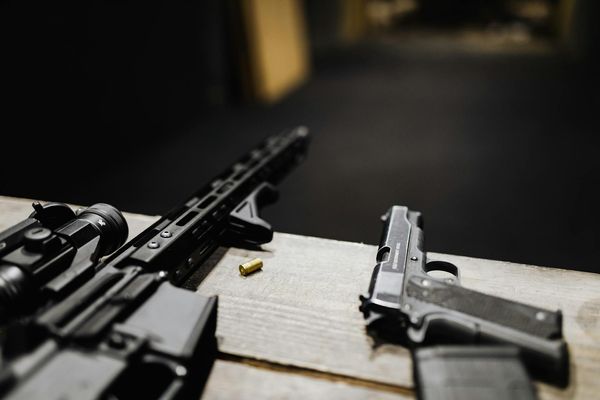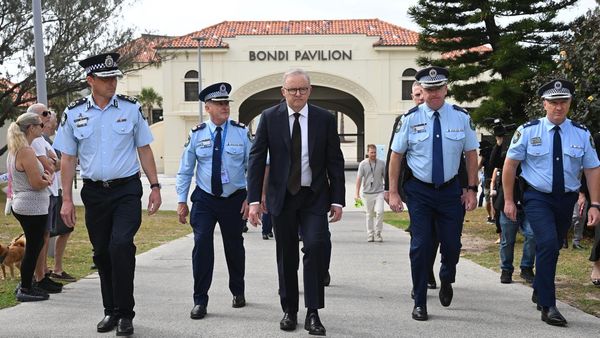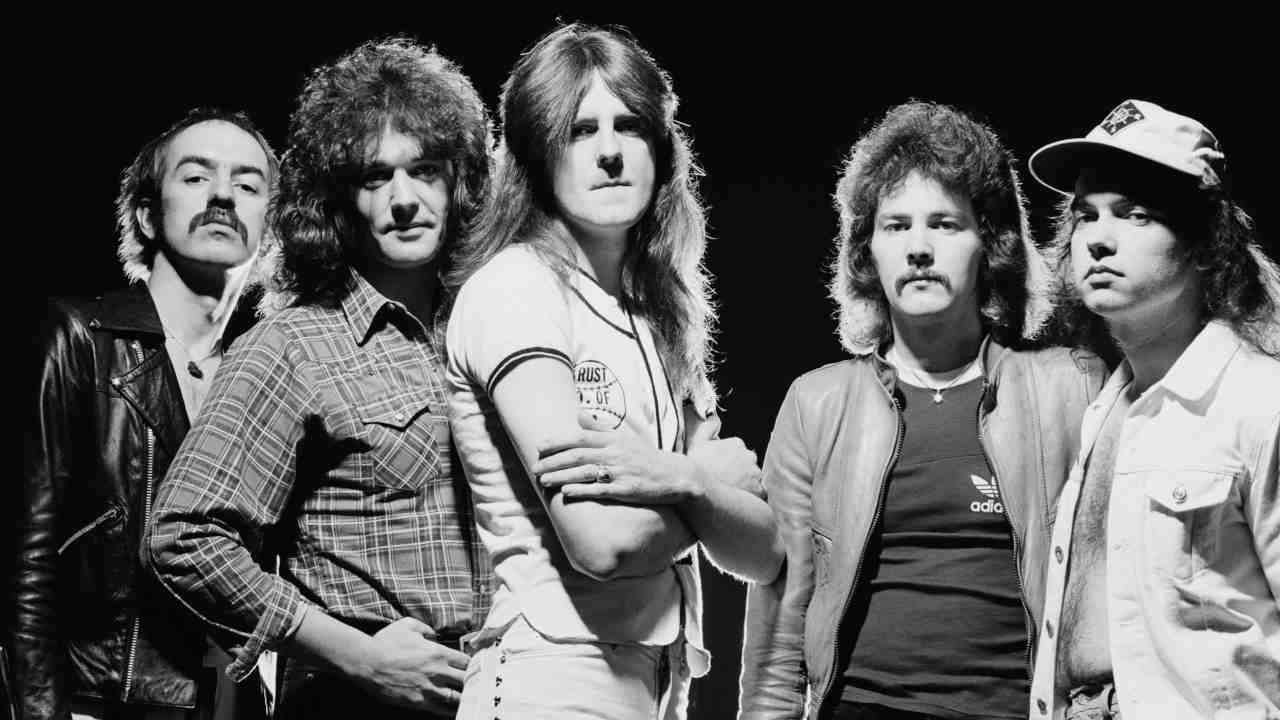
British metal warhorses Saxon did as much as anyone to sow the seeds for the New Wave Of British Heavy Metal, and their classic second album, 1980’s Wheels Of Steel, remains one of that scene’s greatest albums. In 2005, frontman Biff Byford looked back on the making of a record that helped reinvent metal for the 80s.

The early 80s New Wave Of British Heavy Metal produced a pair of future superstars in Iron Maiden and Def Leppard. Saxon might have had the same success as those two bands, but they did just as much to put that scene on the map.
In the space of just over 18 months, these working class heroes from Barnsley, South Yorkshire released three albums that would define these new movement: 1980’s Wheels Of Steel, the same year’s Strong Arm Of The Law and 1981’s Denim And Leather. All three are NWOBHM landmarks, but it’s Wheels Of Steel that stands a whisker above the others.
“How do I view that record?” says Saxon frontman Biff Byford. “It’s obviously a classic. But, more than that, it saved our career.”
The roots of Saxon date back to the mid-70s, and a band named S.O.B., founded by guitarist Graham Oliver and bassist Steve Dawson. Over the next few years, their line-up shifted until it settled around Oliver and Dawson plus Biff (born Paul Byford), second guitarist Paul Quinn and drummer Pete Gill.
As their sound toughened up, they expanded their name from S.O.B. to the blunter Son Of A Bitch, though that name was jettisoned when they finally signed a deal with French label Carrere in 1978, who pointed out that it might get in the way of airplay. Grudgingly, Son Of A Bitch became Saxon. That was the name under which they released their self-titled debut album in the summer of 1979. Saxon was arguably the first NWOBHM album, although it didn’t set the world on fire.
“What you have to remember is that the first album had only sold about 12,000 copies, mainly to hardcore Son Of A Bitch fans,” says Biff. “And to be honest, it wasn’t very good. Carrere made it plain to us that unless we did a lot better on the next record, we’d be dropped. They weren’t looking to sell huge amounts of copies, just for a big improvement. So we were under pressure from the start.”
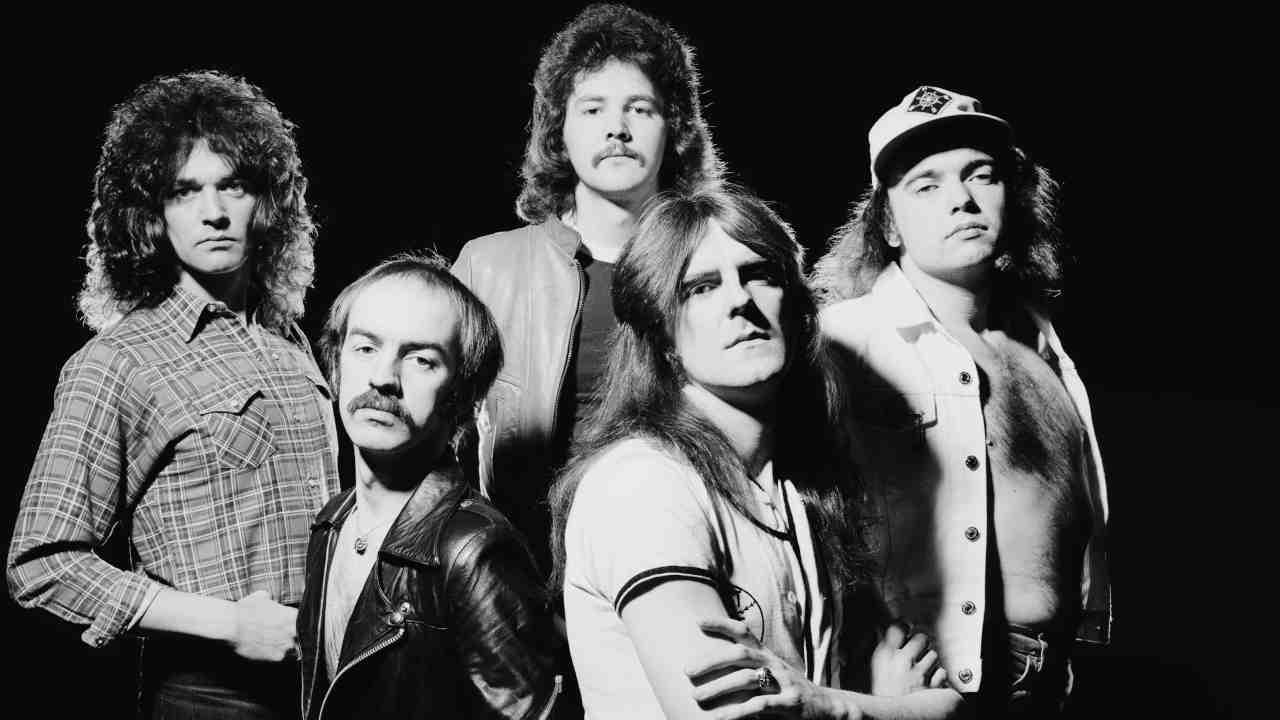
The band got the message. They decamped from Barnsley to deepest Wales to knuckle down and start work on the follow-up.
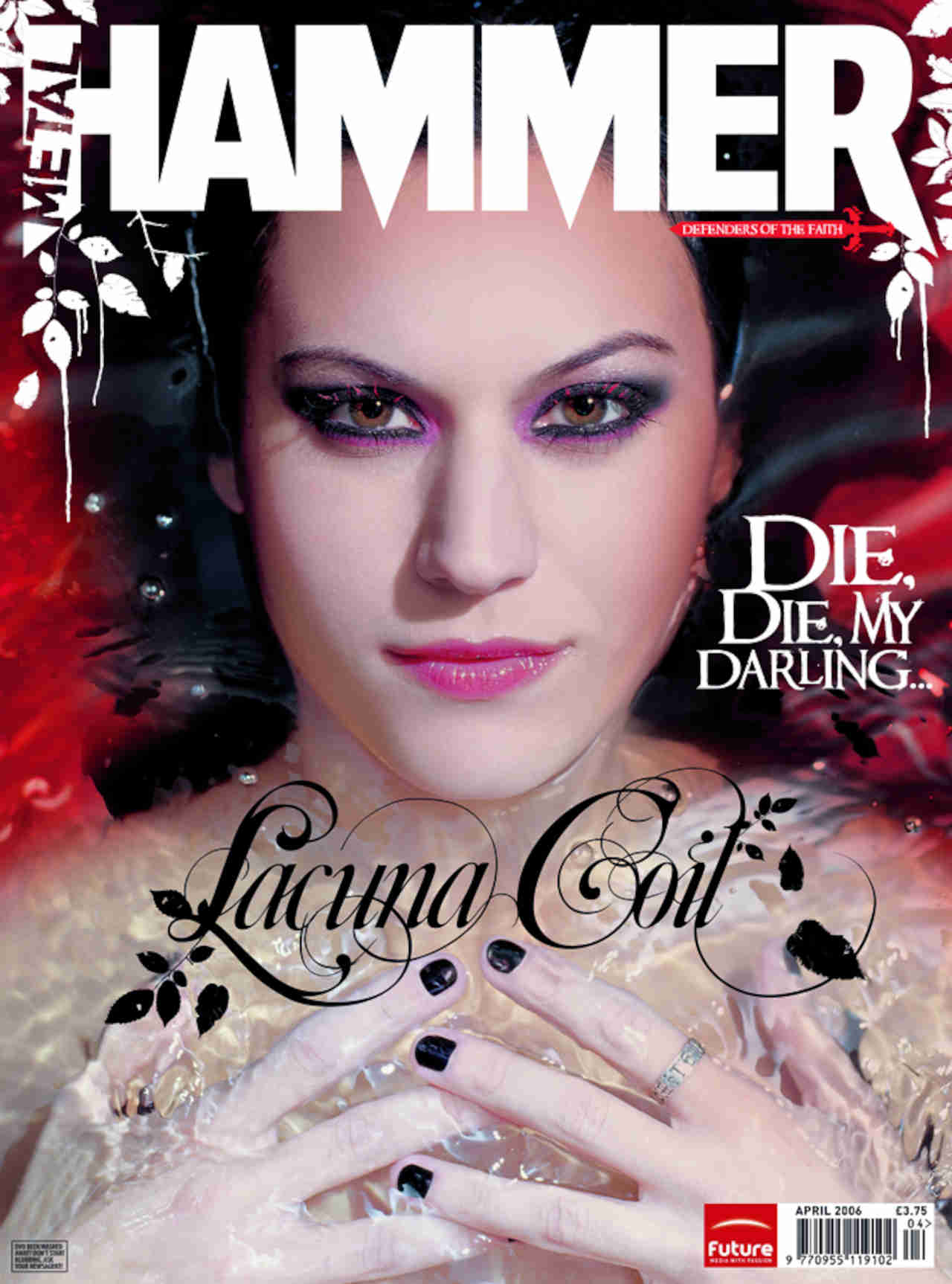
“It was a really wacky time,” laughs the singer. “Our management packed us off to a hut in the Welsh mountains, with about £15 between us. It was a weird area, because we were surrounded by loads of vegans living in tepees! We used to wind them up by ordering loads of meat to be delivered. We’d be in the hut with all these people just staring at us through the window, completely bemused.”
When they weren’t provoking the locals, Saxon managed to get a decent amount of work done. The first two songs they wrote in Wales would set the tone for the whole album.
“We got Wheels Of Steel and 747 (Strangers In The Night) done quite quickly,” says Biff. “And then everything just seemed to flow. By the end we knew that we were in a state of grace. The songs we had were not only the best we could have done, but perfect for the time. I think every successful band has that moment when they just get in the zone, and for us it arrived in Wales.”
By the time they left the vegans to their lentils, Saxon had enough songs for their make-or-break album. They were booked into London’s Rampart Studios – owned by The Who – with producer Peter Hinton, who had signed them to Carrere, and engineer Will Reid-Dick, who the band took the piss out of mercilessly on account of his name.
“We knew what we wanted, and that was the energy we had onstage,” says Biff of the album they were making. “Working with Peter turned out to be a brilliant decision. He got us exactly what we wanted. The album wasn’t full of effects, but was raw, live and right in your face. It had a real punk edge, and that made this stand out from so much else at the time.”
With the pressure on to deliver a killer album, the band didn’t mess around. Even the odd technical SNAFUs couldn’t stop them.
“We had a power cut in the studio one day while we were recording 747 (Strangers In The Night),” says Biff. “There was a back-up generator, but it didn’t kick in right away. In that time, the tape on the track we were cutting slightly stretched. If you listen carefully, the drums and bass slightly slow down at one point. In those days, you literally had to cut the tape up to remove anything, which could be very messy. So we left it in.”
Their discipline in the studio didn’t prevent them from enjoying their down time in London. There was plenty of time to sample some of the less salubrious delights the capital had to offer.
“Every night, we’d leave the studio, and go to a porn club, a strip bar, or an after-hours drinking place,” says Biff. “We’d pick up these girls, and take them back to the bed-and-breakfast place where we were staying. We worked hard, and we played hard!”
By the time they finished recording the album, titled Wheels Of Steel, the band knew they were sitting on something special. Fusing the power of metal with the energy of punk, songs such as Motorcycle Man and the title track (love letters to motorbikes and the freedom of the open road), 747 (Strangers In The Night) (a love story partly inspired by a true life event where a plane tried to land in New York during a city wide blackout), the rat-a-tatting Machine Gun and the melodic Suzie Hold On were instant anthems with grease and dirt under their fingernails. The disappointment of Saxon’s debut album was quickly forgotten.
“There was a buzz about the record even before it came out,” says Biff. “Carrere were distributed by Warner Bros., who were having big success with Van Halen, so they knew how to sell metal. I was taken round the pressing plant while they were getting Wheels Of Steel ready and was amazed at how many copies they were pressing up – it seemed like millions. There was a feeling that we were gonna happen – and big.”
On February 2, 1980, Saxon showcased songs from the as-yet-unreleased new albums at a half-full gig at London’s Electric Ballroom. By the time the album was released two months later on April 3 (a couple of weeks before Iron Maiden’s self-titled debut), Saxon were arguably the biggest new metal band in Britain. Their rise was rubber-stamped by a memorable appearance on Top Of The Pops, performing Wheels Of Steel’s title track, the album’s first single.
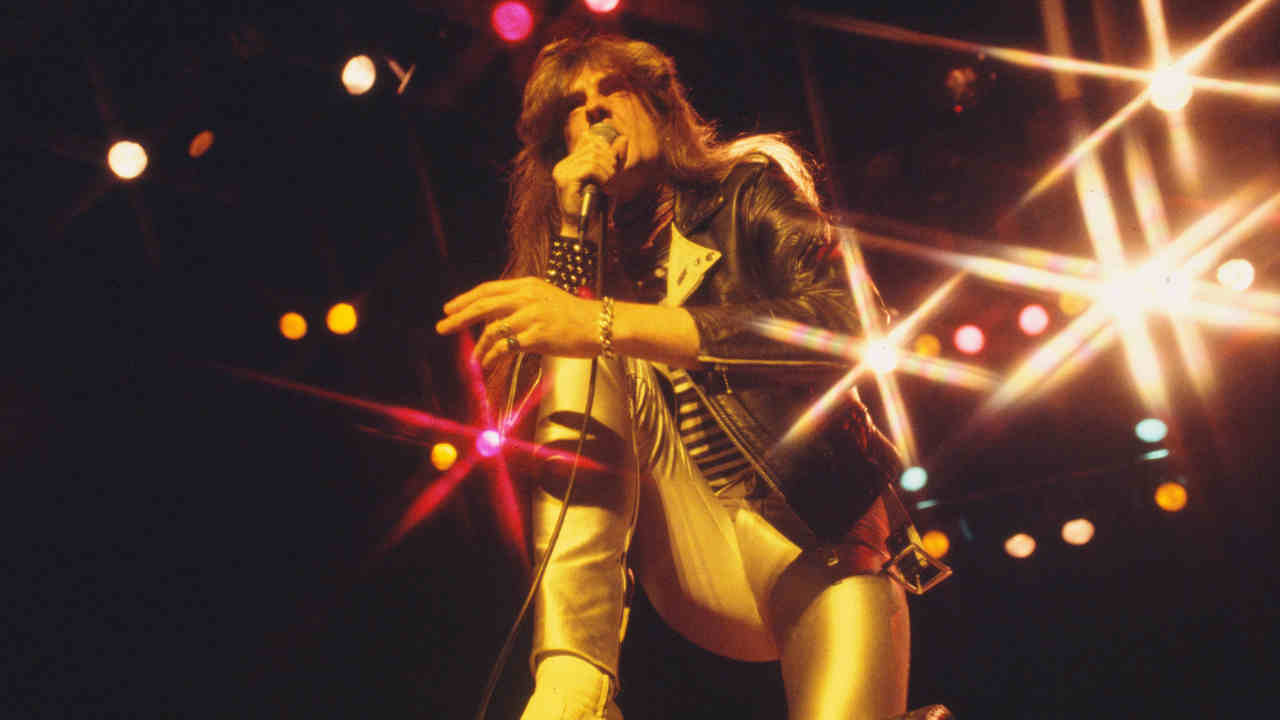
“You can’t believe how much of a difference that made,” says Biff. “We had a club tour booked, and suddenly the queues were going round the block. I think the combination of all the hard work we’d done in 1979, supporting Motörhead on their Bomber tour, and the TV exposure just made things happen. It was our time.”
The Wheels Of Steel single peaked at No.21 in the UK, while follow-up 747 (Strangers In The Night) reaching No.13. The album itself made it to No.5 in the UK charts. But there was an unexpected side to their newfound fame.
“I had to move out of my house,” sighs the singer. “My girlfriend at the time couldn’t handle what was going on. There were fans turning up and climbing the drainpipe. And, on one occasion, about 40 people were in my garden, just chanting Wheels Of Steel. It was insane.”
The album’s success meant Biff found himself in some unusual situations.
“When you’ve been on TV, suddenly everyone wants your opinion on anything,” he says. “I’ve just found a tape of a radio debate I was on in 1981, talking about headbanging with a university professor and a policeman. It’s fucking daft. I might have to include this as a bonus track on a future release.”
In the wake of Wheels Of Steel, Saxon had the wind in their sails. Just seven months later, in November 1980, they released their third album, Strong Arm Of The Law (they appeared at the inaugural Monsters Of Rock festival at Castle Donington in between). Ten months after that they put out Denim And Leather, completing one of metal’s great trilogies.
Those three albums mark the commercial highpoint of Saxon’s career. They survived the collapse of the NWOBHM unscathed, although none of the albums they released in during the rest of the 80s or early 1990s captured the same magic. A series of line-up changes - including the departures of drummer Pete Gill in 1981, bassist Steve Dawson in 1988 and guitarist Graham Quinn in 1995 – could have derailed the band, but Biff Byford was unwilling to let the band go: he still leads it from the front to this day.
“We were big in Britain, no argument,” Biff says of the period around Wheels Of Steel. “Probably the biggest of our generation of metal bands at the time. We’d done it through hard graft and killer songs; none of that trendy image rubbish.”
Originally published in Metal Hammer issue 151, March 2006

